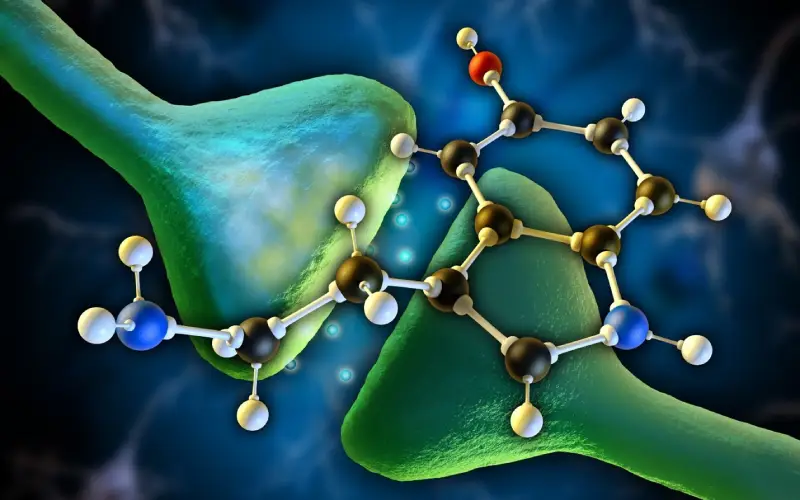For nearly 60 years, researchers have known that blood serotonin levels (WB5-HT) are elevated in one out of four children with autism spectrum disorders (ASD), but what they haven’t known is how serotonin relates to their diagnoses, how it might be connected to ASD risk, and how it might predict ASD behaviors and difficulties. An unexpected finding from an animal study, however, pointed in a new direction.
Jeremy Veenstra-VanderWeele, MD, a pediatric psychiatrist at NewYork-Presbyterian and Columbia, was the senior author on a recent study published in the Journal of Clinical Investigation examining maternal serotonin levels in children with ASD. The first author was Amandeep Jutla, MD, an associate research scientist at Columbia and the New York State Psychiatric Institute. The study found that maternal serotonin differed depending on whether or not the child had rare autism-associated genetic variants and provided insights regarding the association between maternal serotonin levels and neurodevelopment. Below, Dr. Veenstra-VanderWeele discusses the study and implications of its findings.
Research Background and Methods
About a decade ago, we had an unexpected finding in a mouse experiment showing that the genotype of the dam, rather than the offspring, predicted differences in brain serotonin levels during embryonic development. This indicated to us that the maternal serotonin system somehow impacted neurodevelopment in offspring.
We recognized that this discovery merited further research to understand whether maternal serotonin levels were relevant to neurodevelopment in humans. In subsequent work, we examined the relationship between maternal serotonin and the pattern of cognitive function and behavior in children diagnosed with autism spectrum disorder (ASD). What we found was quite striking: children with ASD whose mothers had lower blood serotonin levels had a more severe pattern of difficulty, worse cognitive impairment, and more difficulties with daily behaviors. These findings linked maternal serotonin levels to patterns of difficulty in their children but did not connect directly to biology or genetics. That’s why we pursued the current study.
In this study, we examined WB5-HT levels in the mothers of 276 children with ASD; 13% of whom had at least one rare autism-associated genetic variant. Individuals taking medications known to affect serotonin were excluded.
Key Findings
We found that children with ASD that was not related to rare autism-associated genetic variants were more likely to have mothers with higher serotonin levels. Mothers of children with rare genetic variants had WB5-HT levels that followed a normal distribution.

The new research provides insights regarding the association between maternal serotonin levels and neurodevelopment.
Results confirmed the relevance of our initial animal experiments, indicating that elevated blood serotonin is more likely to be found in mothers of children without rare genetic variants than those with the genetic variants. We still don't know whether maternal serotonin contributes in some direct way or if there is something else that affects both serotonin and neurodevelopment; however, our findings in mice suggest that the maternal serotonin system can have direct effects. At this time, what we can say is that the serotonin system is relevant to early neurodevelopment, which will help improve our understanding of the risk of autism and other developmental disorders.
Future Implications
There are different ways we can follow up these findings. One is to understand what is actually happening in the brain of a developing infant in relation to maternal serotonin levels. The other is to incorporate this information with genetics, biomarkers, and early development to better predict which children might go on to have developmental differences so that we can start early intervention, such as early speech or behavior therapy.
We are now planning a study to follow serotonin levels during pregnancy, as well as the neurodevelopment of babies across the first few years of life using MRI brain imaging. We think this prospective study will provide more information about how the maternal serotonin system influences neurodevelopment in children.



